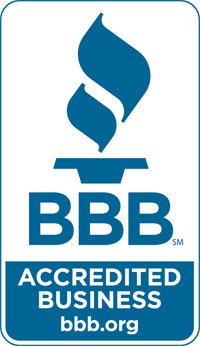What’s the difference between Social Security Disability and Supplemental Security Income ?
When I speak to disability claimants, they often ask me : What’s the difference between Social Security disability and Supplemental Security Income? Should I apply for both? Will I qualify for benefits under both programs?
I explain to them that the Social Security Administration pays disabled people benefits through two programs: the Social Security disability insurance program and the Supplemental Security Income program. Supplemental Security Income is commonly referred to as SSI. You may be eligible for benefits under both programs. Generally, you only receive both Social Security disability and SSI benefits if the amount of your Social Security disability benefits is small enough.
However, I let my clients know that even if high Social Security disability benefits disqualify them from receiving New York or Connecticut SSI benefits, they may get SSI during the five-month waiting period after becoming disabled when no Social Security disability benefits are paid, assuming assets and any other income are small enough.
An insurance plan vs. a welfare program
Social Security disability acts like an insurance plan. You must be “insured” to be eligible to receive Social Security disability benefits. To have this insurance, you must have paid Social Security taxes over a long enough period of time and paid such taxes recently enough. For example, if you are 37 years old, you must have worked and paid taxes for five years out of the 10-year period prior to the calendar quarter your disability began. After you stop working (and paying Social Security taxes), your insured status will lapse at a certain time, just like a private insurance plan.
The SSI program is a welfare program for the blind, disabled and those over 65. The program makes monthly payments to people who have few assets and low income. Many states, including Connecticut, New Jersey, and New York, add money to the basic federal SSI benefit. The state benefit amount varies state-to-state.
Important differences between Social Security disability and Supplemental Security Income
The Social Security disability and SSI programs are both managed by the Social Security Administration and have many of the same terms and ideas. However, there are important differences between the two programs that must be considered when you apply for disability benefits in New York City. The following table lays out some important differences:
| Issue | Social Security disability | Supplemental Security Income |
|---|---|---|
| Qualification requirements | You must meet the Social Security Administration’s criteria for being “disabled.” You are disabled only if your physical or mental impairment is so severe that you are unable to do your previous work and you cannot, considering your age, education, and work experience, do any other substantial gainful work that exists in the national economy. For more information, see our video Will you qualify for Social Security disability benefits?
You must also be “insured” (you must have paid Social Security taxes over a long enough period of time and have paid such taxes recently enough). |
You must be found to be “disabled” using the same definition as is used for the Social Security disability program.
There is no “insured” or earnings requirement. However, your income and assets must not exceed the SSI program’s income and asset limitations. |
| Source of benefit | Social Security trust fund. | U.S. Government’s general revenues |
| Income limitations | If you make more than $1,000 per month at a job involving more than minimal duties you will be ineligible for Social Security disability benefits. | This is a needs based program. Its income limit is based on the monthly SSI benefit amount after several different kinds and amounts of unearned and earned income are counted; this income is referred to as “countable income.” If your monthly countable income is over the SSI benefit amount, you cannot receive benefits. And the more countable income you have, the less your benefit will be. |
| Asset limitations | None. | There is an asset limitation of $2,000 per individual and $3,000 per couple. This does not include a home of any value and one car of any value, if it is used for work or to obtain medical care. |
| Benefit payment amount | The benefit amount you receive is based on your earnings record. This amount may be reduced based on worker’s compensation payments and/or public disability benefits (for example, certain state and civil disability benefits). Your other income or assets do not affect this payment amount. Your monthly payment may be adjusted each year to account for changes in cost-of-living. | The benefit amount you receive is a federal amount set by Congress plus a state supplement, if any, set by your state. Your state supplement amount may vary according to your living arrangements. Your countable income will be subtracted from the federal amount before the state supplement is added. The SSI federal amount is adjusted each year based on cost-of-living changes. |
| Health insurance coverage | Medicare coverage begins after receipt of 24 months of benefits. | In most states, Medicaid coverage begins with entitlement to SSI (sometimes three months before). |
| Waiting period | You must wait a full five months from the date of the onset of your disability. | There is no waiting period. Your SSI payment will begin with the first month after all the SSI requirements are met or when the definition of disability is met, whichever is later. |
| Retroactivity | You may be eligible for payment of up to 12 months of benefits prior to your application, if you were disabled during that time and all other requirements are met. | There is no retroactivity period – you will never receive benefits for any time before the date of your SSI application. |
| Time limit for reopening earlier application | Four years from the date of the notice of the initial determination. Good cause required. | Two years from the date of the notice of the initial determination. Good cause required. |
| State supplements | None. | Many states, including Connecticut, New Jersey, and New York, pay an additional state supplement. The amounts and qualifications vary state-to-state. |
You may be eligible for both Social Security disability benefits and Supplemental Security Income
You may be eligible for either Social Security insurance disability benefits or SSI, or some combination of the two. If you qualify for both, you may lose SSI benefits or received a reduced SSI amount, depending on the amount of your Social Security disability benefits. Or you may now only be eligible for SSI, but you could later become eligible for Social Security disability benefits once you’ve paid enough Social Security taxes.
If the amount of Social Security disability benefits you receive disqualifies you from receiving SSI, you still may get SSI benefits during the five-month waiting period after becoming disabled when no Social Security disability benefits are paid, assuming your assets and any other income are small enough.
Although two applications are required (one for each program), the Social Security Administration in will determine when you apply for disability benefits which program you are eligible for or if you are eligible for both. I can also assist you with any questions you may have about your eligibility.
As an experienced Social Security disability lawyer, I can provide you assistance
If you want my help with your Social Security disability or SSI claim, please give me a brief description of your situation using the form to the right. Or contact me at:
Herbert Forsmith, Attorney at Law
New York and Connecticut Social Security disability lawyer
E-mail me
The Hudson Valley, Connecticut and New York City metropolitan area
(212) 809-1772 or (845) 278-2896
Serving Social Security disability claimants in all five boroughs of New York City and throughout the New York City metro area, the Hudson Valley, and Connecticut.




